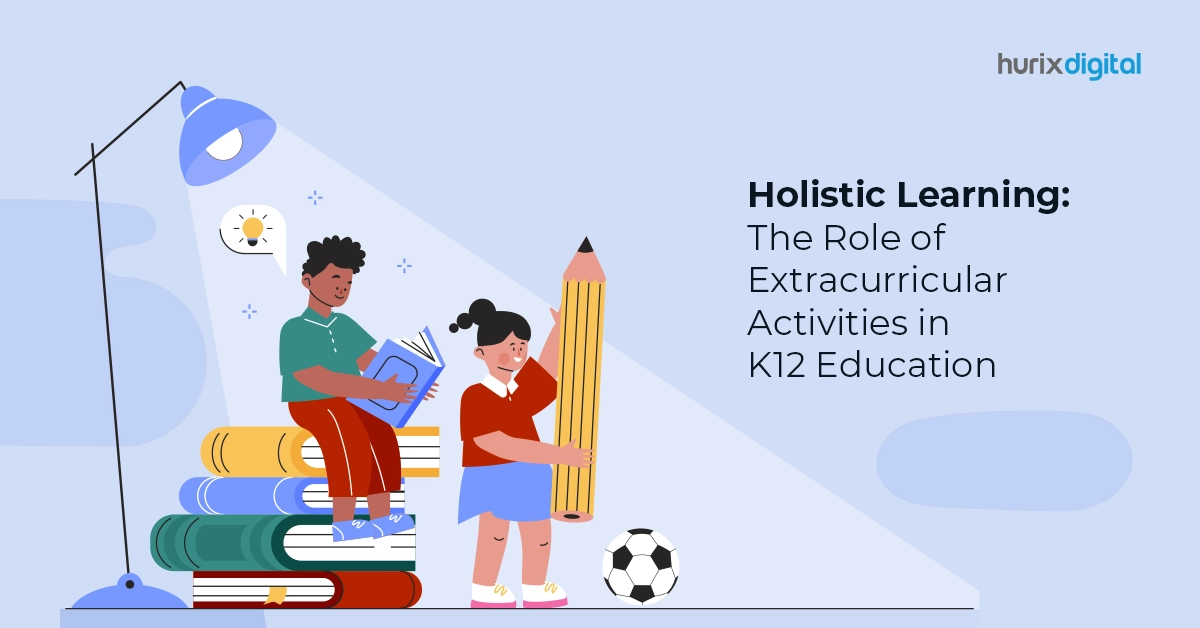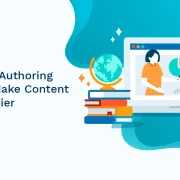
Holistic Learning: The Role of Extracurricular Activities in K12 Education
Summary
This article emphasizes the importance of extracurricular activities for K12 students’ holistic development. It details how sports, debates, and arts are crucial for building teamwork, communication, and time management skills, while also offering benefits like breaking monotony and fostering future readiness.
Education, in its true sense, focuses on the overall development of an individual, which includes academic learning and extracurricular activities. While academia is important to teach students about how the world works, extracurricular activities help them foster interpersonal bonds and hone physical skills for holistic development.
Extracurricular activities provide a host of benefits to K12 learning. They help teachers hone all types of skills in students, not limited to sports or outdoor activities. Aside from academia, extracurricular activities help students build real-life skills they can put to use every day.
Read on as we examine the impact that extracurricular activities have on student development, their importance, and the benefits they offer K12 students.
Table of Contents:
- What are Extracurricular Activities?
- Importance of Extracurricular Activities for K12 Educational Enrichment
- Benefits of Extracurricular Activities
- Embrace a Balanced Approach Toward Education with Hurix Digital
What are Extracurricular Activities?
Extracurricular activities are a plethora of non-educational activities that students can take part in for holistic development. These activities can be voluntary or compulsory and include a wide range of choices, such as:
- Activism, community service, or social service.
- Physical training and exercise.
- Sports such as basketball, football, etc., help students improve teamwork, focus, and tenacity.
- Computer clubs
- Student governments or management to learn productivity, time management, etc.
- Debates, extempore, etc, to hone communication skills.
- Volunteer work.
Schools can have many other forms of extracurricular activities, such as crafts, art, library reading time, etc., to help students explore more of their talents aside from academia.
Also Read: Future Trends in K12 Curriculum Development for 2024
Importance of Extracurricular Activities for K12 Educational Enrichment
Extracurricular activities, even though they are non-academic, teach the students several valuable lessons that they can directly apply to their daily lives. In a nutshell, students gain the following skills through participating in extracurricular activities:
- Communication
- Problem-solving
- Time management
- Organizational skills
- Public speaking
- Leadership and teamwork
Extracurricular activities play a crucial role in the holistic development of students:
1. Enhanced Learning
Extracurricular activities provide opportunities for students to put learned concepts into practice. It fosters a deeper understanding of the concept as students see them working in real life.
For example, as students read about the concept of transpiration in plants, a visit to the garden would help them visualize it better by placing plastic bags on a bunch of leaves in the sun.
2. Holistic Personality Development
Academic learning is purely personal and individualistic. On the other hand, extracurricular activities encourage students to apply teamwork and leadership to the task to solve problems and achieve the objectives of the activity. This helps with overall personality development in a way that traditional academics cannot fulfill.
3. Community and Network Building
Extracurricular activities help students build communities and networks outside of their classrooms. This is important because it helps them establish new connections and gain access to more resources for learning and growth.
Especially in the K12 setup, where it is difficult for students to interact with colleagues other than those in their classroom, extracurricular activities are an opportunity to get to know more people.
4. Discovery of Talents and Skills
Extracurricular activities are an excellent way to help students discover their hidden or latent talents by participating in a variety of activities. For example, a student who excels at math may discover they are also adept at working pottery or playing basketball. It helps give them an additional sense of achievement, which helps build and foster confidence among K12 students.
5. Expanded Opportunities
Extracurricular activities help set the stage for students to gain more exposure to the world outside of their classrooms.
For example, a student in a debate club can participate in state-level competitions as a representative of their own school, gaining exposure and experience in the real world while learning about the subject of the debate.
Benefits of Extracurricular Activities
In addition to being extremely important for the overall development of K12 students, extracurricular activities provide several key benefits to the educational system:
1. Breaking Monotony
Breaking the academic monotony is the primary benefit that extracurricular activities provide for students. Remember: “All work and no play makes Jack a dull boy.”
It is an excellent technique to recover focus and attentiveness after long hours of sitting in front of books and listening to lectures.
2. Honing Pragmatism
Where academia focuses on learning from theories and texts, extracurriculars focus on putting that knowledge to use in the field. Students need to acquire a pragmatic understanding of their knowledge and the various ways in which their skills can be utilized for their benefit in practice.
3. Future-Readiness
For students who hold exceptional talents, honing their extracurricular skills can open up new opportunities and avenues for their future. For example, a chess prodigy at school can potentially go on to become the Grandmaster if they get consistent chances of participating in chess through extracurricular activities at their school.
4. Time Management
Extracurricular activities teach students the concepts of time management and striking the right balance between studies and playtime. It is an excellent way to teach students how to set priorities on their task lists and how to delegate time and effort to get work done within the given amount of time.
5. Social Skills Development
Students eagerly await extracurricular activity time because it provides them with socialization opportunities. They get to meet and greet their friends from different grades, form teams with them, and work towards a common objective. It is an excellent way to promote and encourage healthy socialization.
Also Read: 7 Best Education Tech (EdTech) Companies for K12 Institutes in 2024
Embrace a Balanced Approach Toward Education with Hurix Digital
Extracurricular activities are as important for education as traditional academics. Through participation in non-academic activities, students explore their potential beyond academic performance and form bonds that may last a lifetime.
Even if a school follows blended or remote learning programs, it is possible to leverage K -12 education companies and their solutions to facilitate extracurricular activities over the Internet.
Hurix Digital can help schools set up the infrastructure required to conduct extracurricular activities like cultural learning. In this activity, teachers set up live sessions between students coming from different cultures or parts of the globe to share insights. Such technologies can also help students with career exploration, gain social confidence through virtual conversations, and much more.
Contact us to learn more about how we can help your school expand its extracurricular scope with modern technology.









